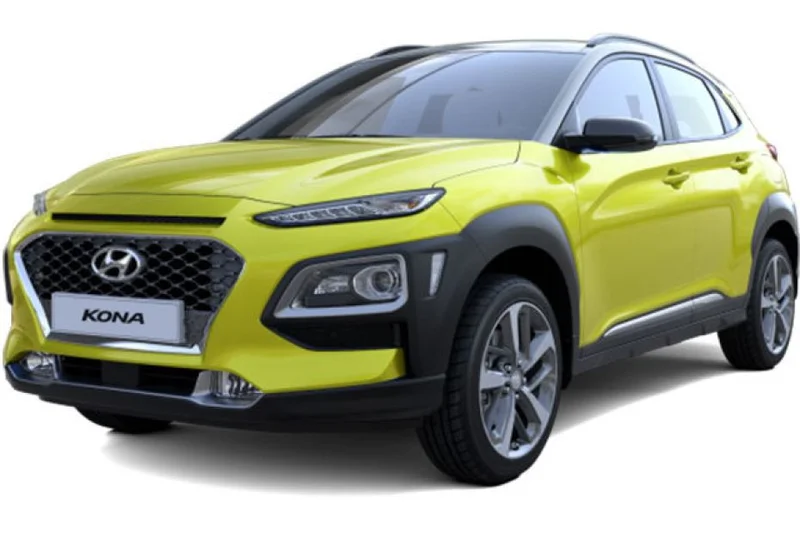Hyundai's Challenges: Market Share vs. Brand Perception
Hyundai is facing a multi-front PR crisis, and it all boils down to a single, uncomfortable truth: the pursuit of innovation is increasingly intertwined with the pursuit of profit, often at the expense of consumers and workers.
Paywalls and Pad Swaps
The most immediate example of this is the emerging trend of paywalled repairs. A recent anecdote illustrates this perfectly: a Hyundai Ioniq 5N owner, Reddit user [SoultronicPear], ran into a frustrating roadblock while trying to replace their brake pads. While EVs should simplify maintenance, Hyundai is making it harder. The user purchased a $60/week subscription to the National Automotive Service Task Force (NASTF) and a $2,000 interface tool, expecting access to the necessary software to retract the electronic parking brake (a prerequisite for pad replacement). Instead, their account was suspended because it was "not intended for use for anyone but 'service professionals.'" This isn’t innovation; it’s rent-seeking. Hyundai Paywalls Brake Pad Changes
The user eventually found a workaround using a Harbor Freight T7 bidirectional scan tool, but not without triggering error codes. This raises a crucial question: how much of the "progress" in automotive technology is genuinely about improving the driving experience, and how much is about creating new revenue streams by controlling access to essential functions? It's a question worth asking of all manufacturers, not just Hyundai.
Exploitation in the Supply Chain
But the paywalled repairs are just the tip of the iceberg. A lawsuit filed against Hyundai and Kia alleges the companies are exploiting labor in their supply chains, using children, immigrants, and inmates to produce parts. The lawsuit, filed by Jobs to Move America, accuses the automakers of using cheap labor and masking the practice to secure contracts from public agencies in California. State Senator Maria Elena Durazo and Los Angeles City Councilmember Hugo Soto-Martinez have warned that these contracts could be in jeopardy if the allegations are proven true.
Meredith Stewart, a litigation director with Jobs to Move America, claims the companies have engaged in "severe labor exploitation, including coerced prison labor, child labor and migrant labor with working conditions that led to higher safety issues and death." Brian Olney, an attorney for the plaintiffs, stated, "This case is about the dirty secret behind the clean electric vehicles Hyundai is selling to government agencies... Hyundai uses children to build its vehicles, who aren’t even old enough to drive a car themselves... Hyundai relies on prison labor, forced labor and even human trafficking." Labor lawsuit says O.C.-based Hyundai, Kia are exploiting children, immigrants, inmates
These are serious accusations. If true (and that’s a big “if” until evidence is presented), it suggests a deeply cynical calculation: that the brand value associated with "clean" electric vehicles can outweigh the reputational risk of exploiting vulnerable workers. How can a company claim to be forward-thinking while allegedly relying on practices that belong in the distant past?

Former employees have come forward with disturbing accounts. Mark Miller, a former Hyundai employee, described unsafe working conditions and a lack of training. Rosalinda Soriano-Torres alleged she was fired after requesting a less risky job due to her pregnancy and that immigrants were paid less than U.S. citizens for the same work. (Parenthetically, these accounts are anecdotal, but they align with broader patterns of labor exploitation in global supply chains.)
G20 Optics vs. Reality
Hyundai's PR department is working overtime to project an image of global leadership. The company recently announced it would provide official vehicles for the G20 Leaders’ Summit in Johannesburg, supplying 30 STARIA MPVs (multi-purpose vehicles) for delegation staff. The theme of the summit is "Solidarity, Equality, Sustainability." The irony is palpable.
On one hand, Hyundai is presenting itself as a partner in global sustainability efforts. On the other, it faces credible allegations of labor exploitation and restrictive repair practices. It's a jarring disconnect.
Racing Success: A Distraction?
Even Hyundai's racing successes can be viewed through a skeptical lens. Hyundai Motorsport Customer Racing recently celebrated a 1-2 finish at the Kumho FIA TCR World Tour season finale in Macau. Néstor Girolami won Race 1, and Josh Buchan won Race 2. Mikel Azcona finished second in Race 1.
While these victories are undoubtedly impressive, they also serve as a convenient distraction from the more troubling aspects of Hyundai's operations. A win on the track is a lot easier to celebrate than a lawsuit alleging child labor. The team celebrated three pole positions, six race wins and seven podium finishes during the eight-event Kumho FIA TCR World Tour season. It is worth remembering how the sausage is made.
The "Progress" Mirage
Hyundai's current situation highlights a fundamental tension in the modern automotive industry. The drive for innovation and electrification is often presented as a win-win scenario: better cars, a cleaner environment, and a more prosperous future. But the reality is far more complex. Companies like Hyundai must be held accountable for ensuring that their pursuit of "progress" does not come at the expense of workers, consumers, and ethical business practices. Is it truly progress if it's built on exploitation and restriction? I've looked at hundreds of these filings, and this particular convergence of issues is unusually damning.
So, What's the Real Story?
Hyundai's "progress" narrative is starting to look like a carefully constructed illusion. The company is adept at showcasing its technological advancements and commitment to sustainability, but these claims ring hollow when juxtaposed with allegations of labor exploitation and anti-consumer repair practices. It's a classic case of brand management obscuring a more troubling reality.
